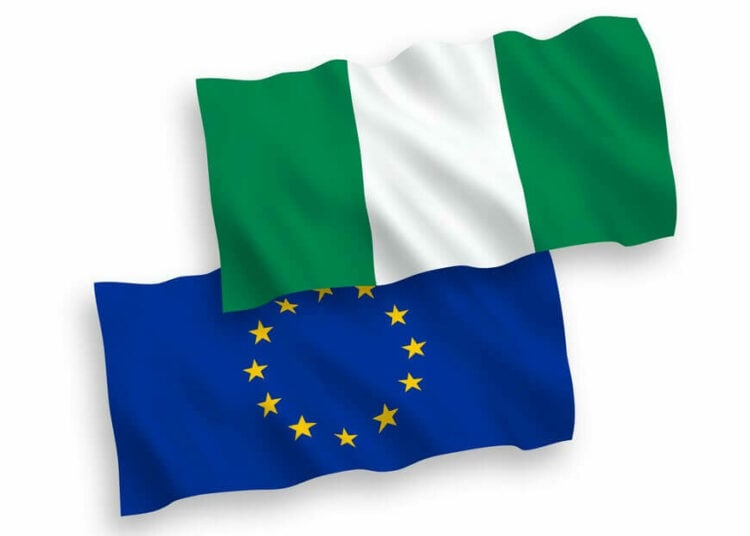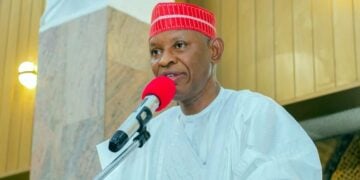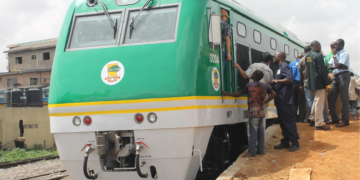Federal Government of Nigeria and the European Union (EU) have pledged to strengthen cooperation in delivering sustainable development projects in Nigeria, with a renewed focus on grassroots communities under President Bola Tinubu’s Ward Development Programme.
At a seminar on “Advancing Sustainable Development through EU–Nigeria Development Cooperation and Instruments of Innovative Financing” in Abuja, the minister of Budget and Economic Planning, Senator Atiku Abubakar Bagudu, described the EU as a longstanding and reliable development partner whose support continues to complement Nigeria’s reform and investment efforts.
He said the EU’s €900 million Global Gateway Investment Package – covering energy, health, education, social protection, and peacebuilding – has come at a critical time as Nigeria pushes through bold but difficult reforms.
“Over the years, Nigeria and the European Union have enjoyed a long and productive history of cooperation, one that has steadily evolved in depth and scope,” Bagudu said. “The Global Gateway Investment Package comes at a most opportune time, focusing on green transition, digital transformation, connectivity, and human capital, aligning perfectly with Nigeria’s priorities.”
The minister stressed that the Tinubu administration was deliberately channeling fiscal gains from ongoing reforms to strengthen macroeconomic stability while cushioning the impact on households and vulnerable groups. A key plank of this approach, he said, is the Renewed Hope Ward-Based Development Programme, a bottom-up strategy designed to deliver infrastructure, essential services, and opportunities at the community level.
According to Bagudu, the Ward Development Programme “aligns seamlessly with the EU’s Global Gateway strategy” as both frameworks emphasise local ownership, sustainability, and inclusiveness.
He said that by designating wards as operational hubs for EU-supported interventions, Nigeria is ensuring that investments reach the communities where they are most needed.
Highlighting milestones already recorded, Bagudu pointed to the Emi Eko Project as an example of how climate-resilient and inclusive EU investments can transform local livelihoods. He also noted that the Global Gateway’s innovative financing mix – grants, concessional loans, guarantees, and private capital – offers Nigeria the opportunity to scale projects under its upcoming National Development Plan (2026–2030).
On his part, the EU Ambassador to Nigeria and ECOWAS, Mr. Gautier Mignot, underscored the importance of stronger communication and accountability in Nigeria’s reform and development partnership with the EU.
“We really need to increase our communication efforts,” Mignot said. “Accountability is very important. We have to show our people, the taxpayers, that every money invested is well managed.”
The ambassador said that beyond financial commitments, EU-Nigeria cooperation must demonstrate tangible results and visibility to ensure greater buy-in from citizens in Nigeria and Europe.





